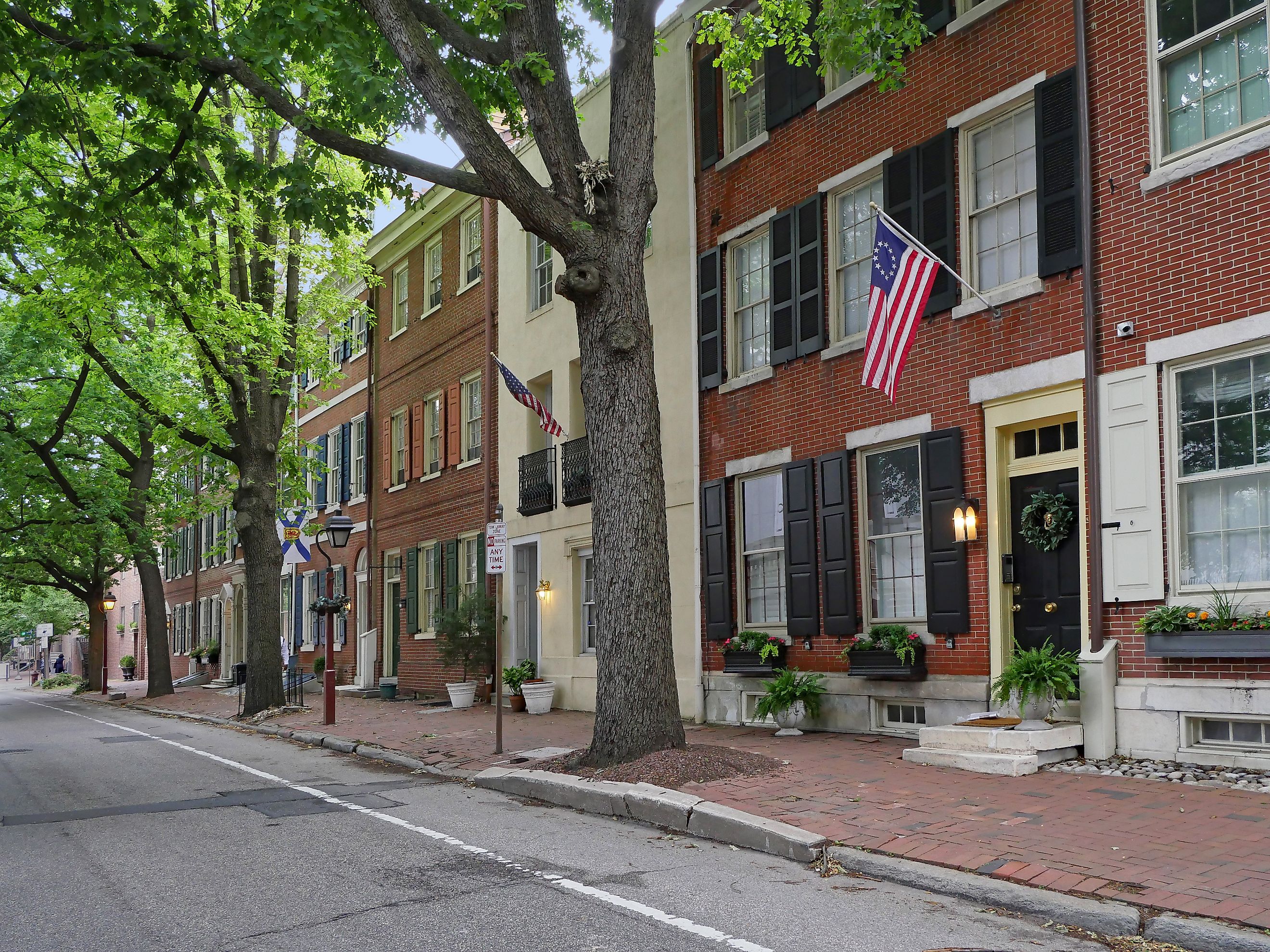
The Original Thirteen Colonies
Before the United States declared independence in 1776, the eastern seaboard was home to thirteen British colonies. These original colonies laid the political, economic, and cultural groundwork for what would become the United States of America. From the rocky shores of New England to the rice plantations of the South, each colony had a distinct character shaped by geography, resources, religion, and people.
Together, the thirteen colonies were part of Great Britain's expansionist ambitions. Over time, however, differences in governance, taxation, and self-determination led to growing tensions with the British Crown. The colonies ultimately united in a revolutionary cause that transformed them from scattered settlements into the first states of a new nation.
Each of the thirteen colonies had its own founding, purpose, and historical significance, shaped by geography, culture, and colonial ambitions.
New England Colonies
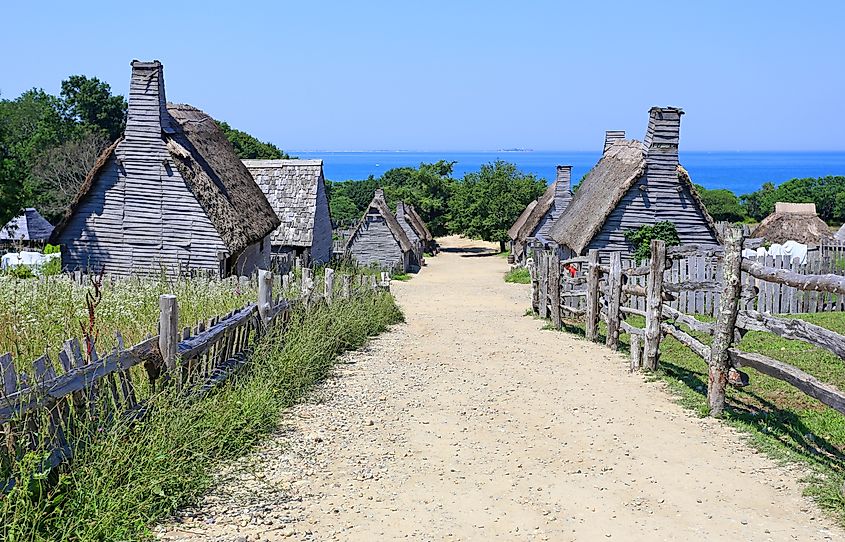
Massachusetts
Founded: 1620 (Plymouth), 1630 (Massachusetts Bay)
Founders: Pilgrims and Puritans
Reason for founding: Religious freedom
Massachusetts was the site of the first successful New England settlement by the Pilgrims in 1620. Ten years later, the Puritans established the Massachusetts Bay Colony in Boston. Religion shaped nearly every aspect of life here, from education to governance. The colony became a hub of commerce, shipbuilding, and intellectual activity, home to the nation’s first public school and Harvard University.
Connecticut
Founded: 1636
Founder: Thomas Hooker
Reason for founding: Political and religious freedom
Founded by Puritan dissidents from Massachusetts, Connecticut was a reaction to the strict religious rule of Boston. In 1639, it adopted the Fundamental Orders, one of the earliest written constitutions in the colonies. Fertile soil and access to waterways made it ideal for farming and trade.
Rhode Island
Founded: 1636
Founder: Roger Williams
Reason for founding: Religious tolerance
Roger Williams, banished from Massachusetts for his beliefs, founded Rhode Island as a haven for religious minorities. It became the most religiously tolerant of all the colonies, allowing freedom of worship to people of all faiths. The colony also opposed slavery earlier than most.
New Hampshire
Founded: 1623
Founders: English settlers and fishermen
Reason for founding: Trade and agriculture
New Hampshire began as a series of fishing and trading settlements. Though it was at times governed by Massachusetts, it eventually became a separate colony. Timber and fish were key to its economy, and it played a role in the American Revolution with early resistance against British taxes.
Middle Colonies
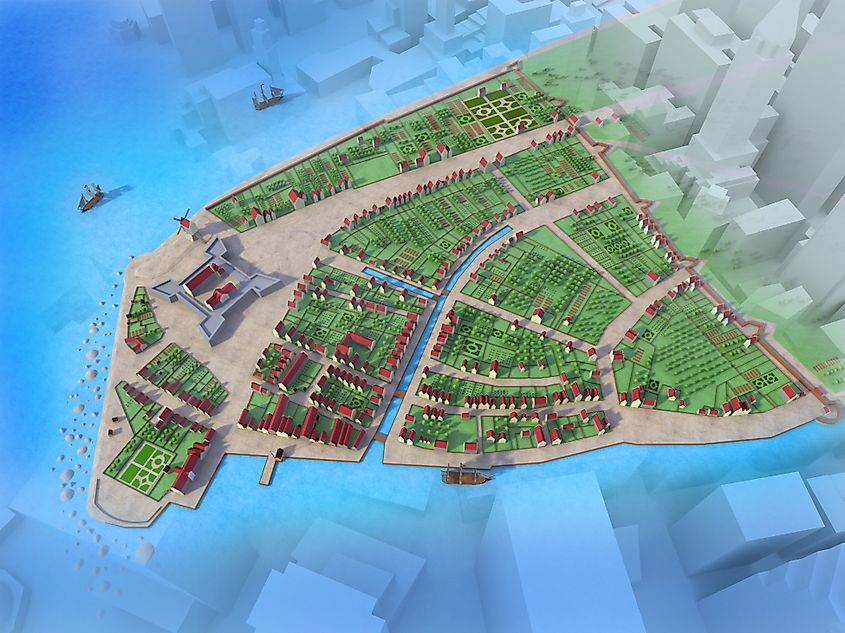
New York
Founded: 1624 (as New Netherland), became English in 1664
Founder: Originally Dutch settlers, taken by the Duke of York
Reason for founding: Trade
Originally established by the Dutch as a commercial colony centered on New Amsterdam (now New York City), New York was seized by the English in 1664. It remained a trade powerhouse and became one of the most diverse and cosmopolitan colonies due to its mix of European settlers and thriving ports.
New Jersey
Founded: 1664
Founders: Lord Berkeley and Sir George Carteret
Reason for founding: Trade and religious freedom
Carved from New York territory, New Jersey was granted to two loyal nobles of King Charles II. It was divided into East and West Jersey before unifying in 1702. The colony was known for its fertile farmland, ethnic diversity, and a mix of religious communities.
Pennsylvania
Founded: 1681
Founder: William Penn
Reason for founding: Religious freedom for Quakers
Granted to William Penn as repayment of a debt by the Crown, Pennsylvania became a refuge for Quakers and other religious minorities. Penn's “holy experiment” emphasized tolerance, fair treatment of Native Americans, and democratic principles. Philadelphia emerged as a key political and economic center.
Delaware
Founded: 1638 (as New Sweden), became English in 1664
Founder: Swedish settlers, later governed by Pennsylvania
Reason for founding: Trade and agriculture
Delaware has a unique origin story, initially settled by the Swedes before falling under Dutch and then English control. Though administered by Pennsylvania for decades, it had its own legislature. The colony’s economy was centered on farming and shipbuilding, with a population known for its independence.
Southern Colonies
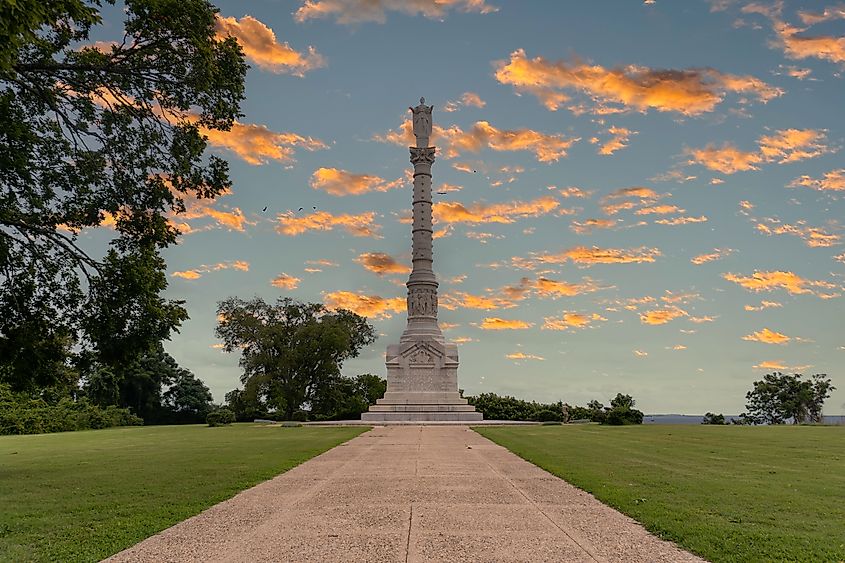
Maryland
Founded: 1632
Founder: Lord Baltimore (Cecil Calvert)
Reason for founding: Religious freedom for Catholics
Maryland was founded as a refuge for English Catholics facing persecution. The Maryland Toleration Act of 1649 was one of the first laws guaranteeing religious freedom, though it applied only to Christians. Tobacco farming became the colony’s economic backbone, relying heavily on indentured servants and enslaved labor.
Virginia
Founded: 1607
Founder: Virginia Company of London
Reason for founding: Economic profit
Jamestown, Virginia was the first permanent English settlement in North America. The colony was established primarily for the purpose of making a profit through trade and agriculture. Tobacco quickly became a profitable export. Virginia also developed the first representative legislative assembly in the colonies, the House of Burgesses, in 1619.
North Carolina
Founded: 1663 (split from South Carolina in 1712)
Founders: English settlers from Virginia
Reason for founding: Agriculture and trade
Settlers from Virginia moved south to claim land and establish plantations. The colony was less reliant on slavery early on than its southern neighbor but grew tobacco, corn, and indigo. Dense forests also fueled a lumber and tar trade.
South Carolina
Founded: 1663 (split from North Carolina in 1712)
Founders: English aristocrats and settlers from the Caribbean
Reason for founding: Plantation economy
South Carolina quickly became a major player in the Atlantic trade, especially with its rice and indigo plantations worked by enslaved Africans. Charleston became one of the most important colonial ports. The colony’s rigid class structure and reliance on slavery foreshadowed deep divisions in American society.
Colonial Life and Regional Differences
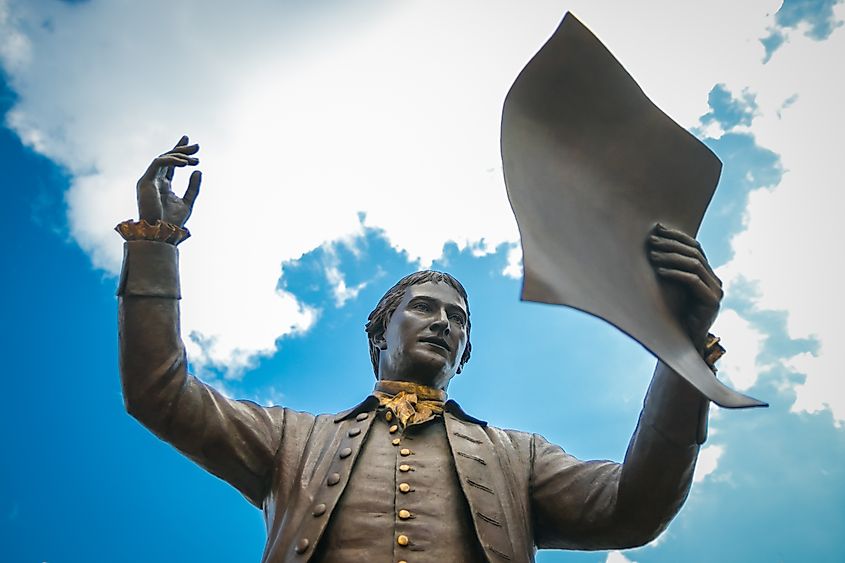
While united in their opposition to British rule by the 1770s, the thirteen colonies were anything but uniform in their origins and priorities. Geography played a major role in shaping regional economies:
-
New England Colonies focused on shipping, timber, and small-scale farming. Town meetings and a strong sense of religious purpose defined their civic life.
-
Middle Colonies had fertile land and diverse populations. They became centers of trade, wheat farming, and political innovation.
-
Southern Colonies built large plantations dependent on enslaved labor. Their economies revolved around cash crops like tobacco, rice, and indigo.
Religious diversity was also a defining feature. While Puritanism dominated New England, Quakers shaped Pennsylvania, Anglicans held sway in Virginia, and Catholics found refuge in Maryland. The level of religious tolerance varied dramatically from one colony to the next.
From Colonies to States
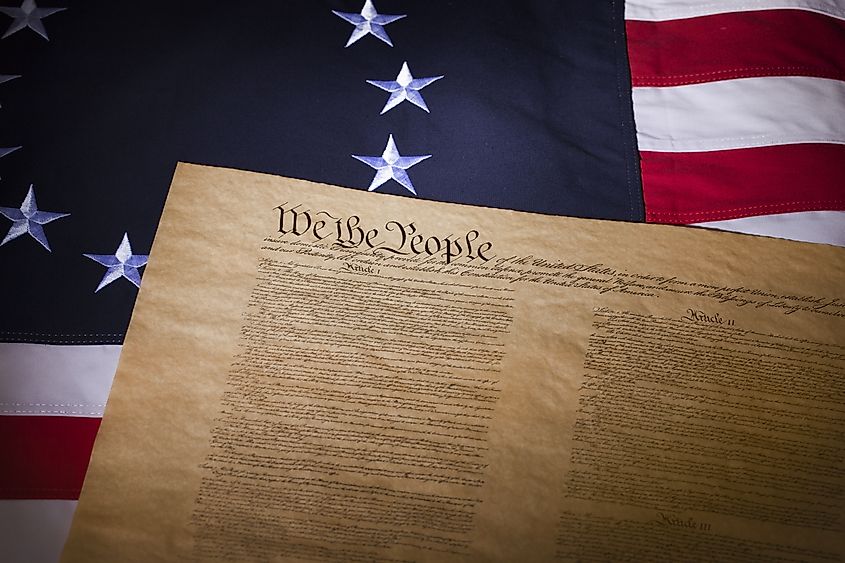
Tensions with Great Britain began to rise in the mid-18th century, especially after the Seven Years' War. Taxation without representation, trade restrictions, and British military presence sparked growing unrest. Events like the Boston Massacre and the Stamp Act fueled revolutionary sentiments.
In 1774, delegates from twelve of the thirteen colonies met in Philadelphia for the First Continental Congress. By 1776, the colonies were prepared to take a bold step. On July 4, the Second Continental Congress approved the Declaration of Independence, formally breaking away from British rule.
Each colony transformed into a state, forming the foundation of the United States. Their shared struggle against British control forged a sense of unity, even as regional differences continued to shape the young nation.
Thirteen Colonies, One Nation
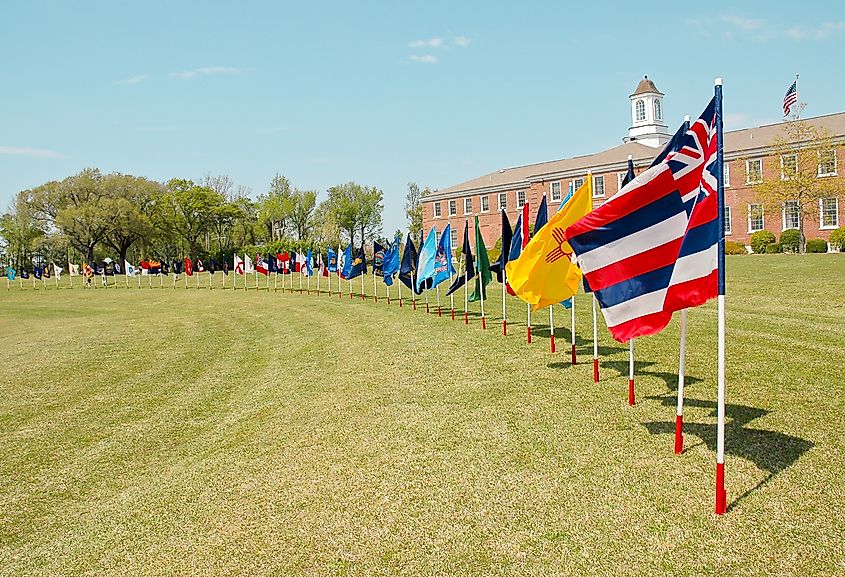
The original thirteen colonies were born out of different motives: profit, religion, and political freedom. Each carved out its own identity through distinct economies, governments, and cultural practices. Yet despite their differences, the colonies came together to challenge the greatest empire of the time and build something entirely new.
The legacies of these colonies still echo across America today. From the town greens of New England to the low country of the Carolinas, they remind us of the complex, ambitious, and often turbulent beginnings of a country still shaped by its colonial roots.